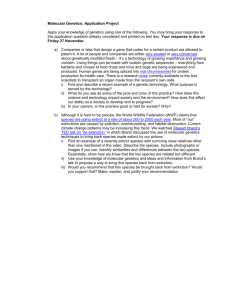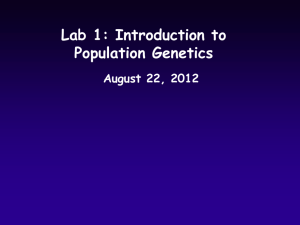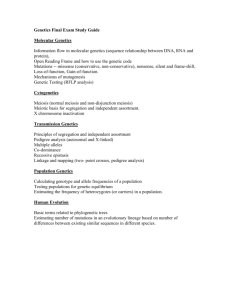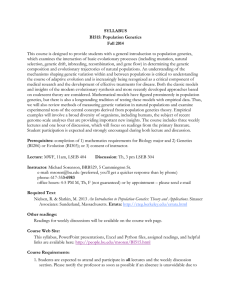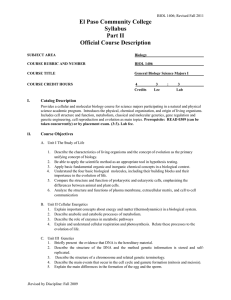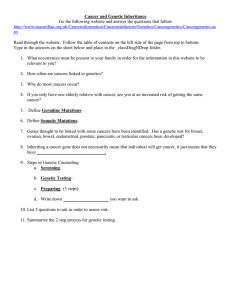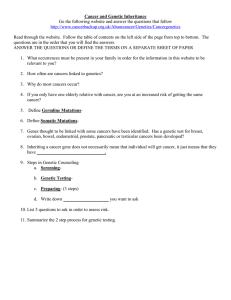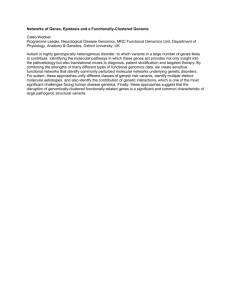ANTH 397: SpTop: Human Evolutionary Genetics
advertisement
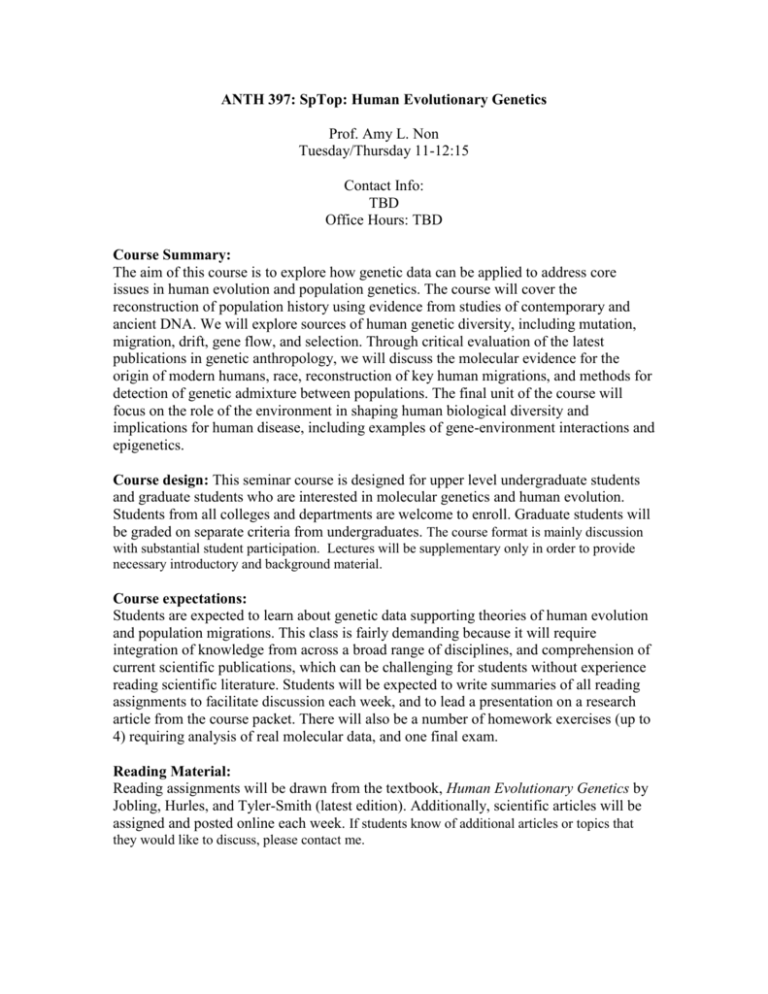
ANTH 397: SpTop: Human Evolutionary Genetics Prof. Amy L. Non Tuesday/Thursday 11-12:15 Contact Info: TBD Office Hours: TBD Course Summary: The aim of this course is to explore how genetic data can be applied to address core issues in human evolution and population genetics. The course will cover the reconstruction of population history using evidence from studies of contemporary and ancient DNA. We will explore sources of human genetic diversity, including mutation, migration, drift, gene flow, and selection. Through critical evaluation of the latest publications in genetic anthropology, we will discuss the molecular evidence for the origin of modern humans, race, reconstruction of key human migrations, and methods for detection of genetic admixture between populations. The final unit of the course will focus on the role of the environment in shaping human biological diversity and implications for human disease, including examples of gene-environment interactions and epigenetics. Course design: This seminar course is designed for upper level undergraduate students and graduate students who are interested in molecular genetics and human evolution. Students from all colleges and departments are welcome to enroll. Graduate students will be graded on separate criteria from undergraduates. The course format is mainly discussion with substantial student participation. Lectures will be supplementary only in order to provide necessary introductory and background material. Course expectations: Students are expected to learn about genetic data supporting theories of human evolution and population migrations. This class is fairly demanding because it will require integration of knowledge from across a broad range of disciplines, and comprehension of current scientific publications, which can be challenging for students without experience reading scientific literature. Students will be expected to write summaries of all reading assignments to facilitate discussion each week, and to lead a presentation on a research article from the course packet. There will also be a number of homework exercises (up to 4) requiring analysis of real molecular data, and one final exam. Reading Material: Reading assignments will be drawn from the textbook, Human Evolutionary Genetics by Jobling, Hurles, and Tyler-Smith (latest edition). Additionally, scientific articles will be assigned and posted online each week. If students know of additional articles or topics that they would like to discuss, please contact me.


